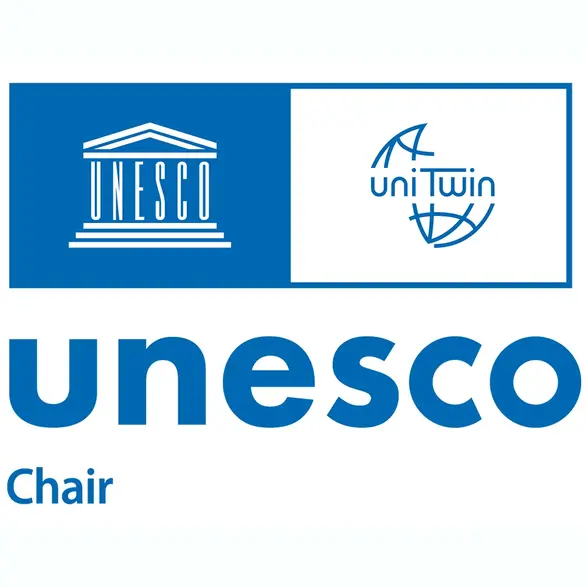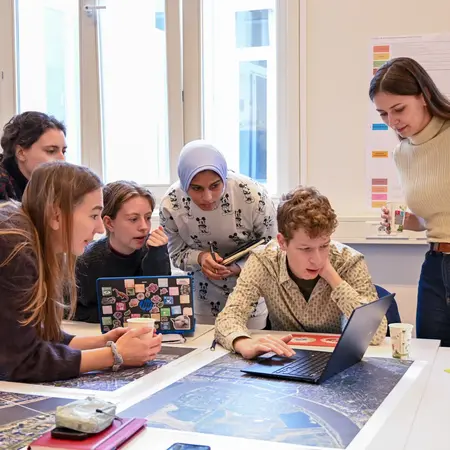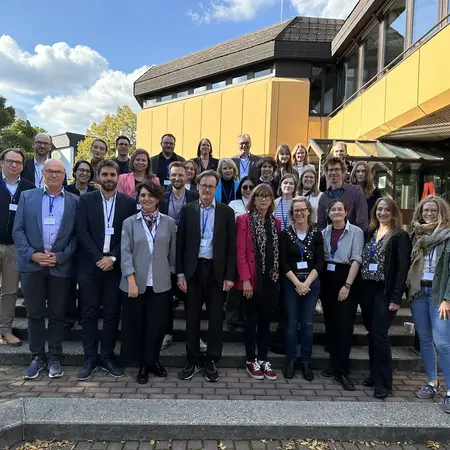
UNESCO Chair
UNESCO Chair on Historic Urban Landscapes and Heritage Impact Assessments
The UNESCO Chair on Historic Urban Landscapes and Cultural Heritage Impact Assessment was established by UNESCO resolution in April 2022 at Hochschule RheinMain in the Faculty of Architecture and Civil Engineering. It is the only UNESCO Chair in Hesse and the only UNESCO Chair at a university of applied sciences in Germany. The chair holder is Prof. Dr.-Ing. Michael Kloos.

Mission
The UNESCO Chair supports the conservation and sustainable development of Historic Urban and Cultural Landscapes inscribed on the UNESCO World Heritage List, particularly when they are under pressure to change. It also develops expertise in planning, management, and project assessment, as well as strategies for conflict prevention and mediation in UNESCO World Heritage sites, with a focus on applied research, teaching, and knowledge transfer.
News

Wiesbaden, 13.11.2025 - HSRM students attend workshop at the University of Antwerp

Wiesbaden, 15.10.2025 – Hochschule RheinMain hosted the Annual Meeting of the German UNESCO Chairs Network.
Research and teaching
The UNESCO Chair researches the complexity of urban World Heritage sites on the basis of the UNESCO Recommendation on the Historic Urban Landscape 2011. This includes research projects, publications as well as thesis and doctoral projects.
The UNESCO Chair on Historic Urban Landscapes and Heritage Impact Assessment is closely linked to teaching in the two degree programs Architectural Heritage Conservation (B.Sc.) and Sustainable Heritage Conservation (M.Sc.).
Publications on the UNESCO Chair
Network
- HERILAND - a Europe-wide research and training network on cultural heritage in connection with spatial planning and design
- UNESCO Chair strengthens international network - UNESCO Chair participates in the International Network for Heritage Conservation at Higher Education Institutions. Read the article
Safeguarding cultural heritage is interdisciplinary. The UNESCO Chair brings together experts from eight degree programs in the Faculty of Architecture and Civil Engineering, bundles know-how for research and provides new impetus for teaching and international cooperation.
- Prof. Dr. Cristian Abrihan / Project development in a historical context
- Prof. Dr. phil. Anne Bantelmann-Betz / Monument Conservation
- Prof. Dr.-Ing. André Bruns / Mobility management and traffic planning
- Prof. Dr.-Ing. Christoph Duppel / Constructing in a historical context
- Prof. Dr. Georg Ebbing / Building Theory and Design
- Prof. Dr. Matthias Kowald / Mobility behavior
- Prof. Dr. Manfred Loidold / Geoinformatics and Surveying
- Prof. Dr.-Ing. Corinna Rohn / Building history, building survey, building conservation and conversion